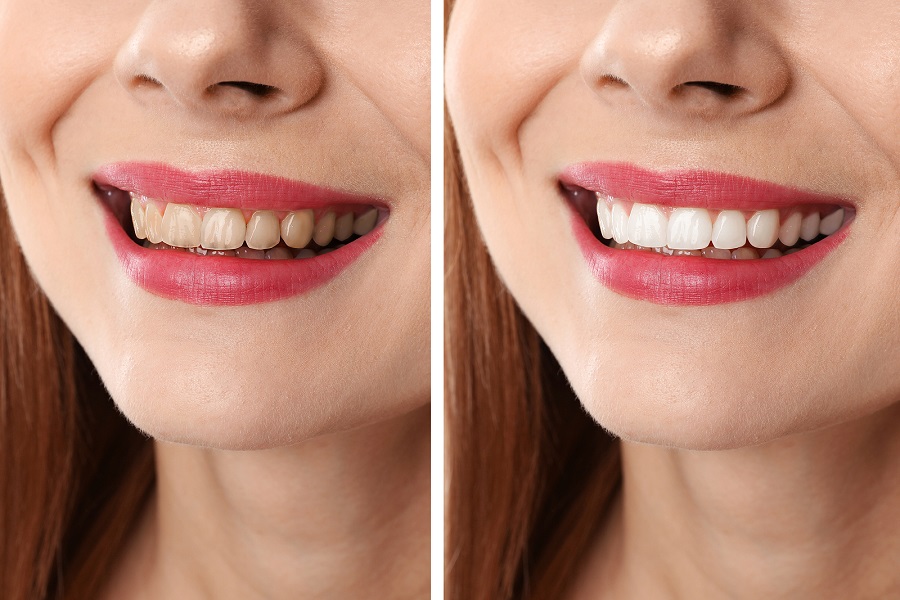READING DENTAL X-RAYS: WHAT TO LOOK FOR IN YOUR TREATMENT
THE IMPORTANCE OF UNDERSTANDING YOUR DENTAL X-RAYS
Most dental patients are familiar with the regular routine at a dental check-up. You’ll get an X-ray, discuss your current dental hygiene routine, ask your dentist about any glaring issues and wait for your X-ray results before proceeding on with a cleaning. Next, your dentist brings in your X-rays and informs you that despite your best efforts, you have a cavity! They’ll show you the picture of your teeth to help explain the issue but because you aren’t exactly sure what you’re looking at, you simply go along with what your dentist tells you.
While it’s true that your dentist and their team have gone through special training to be able to accurately read an X-Ray, with a few simple tips, you can take a closer look and better understand these interesting scans yourself during your next office visit.
HOW DENTAL X-RAYS WORK
Dental X-rays provide a good look at what’s going on with your teeth because your tooth’s mineral content naturally blocks some of the radiation that is used to take a picture. This causes some areas of the film to be less exposed and appear lighter. On an X-ray of a tooth, your enamel will appear as the lightest color because it has a high mineral content. The dentin layer of your tooth will slightly darker because it is less calcified.
FINDING CAVITIES ON X-RAYS
Tooth decay is a part of your tooth that is experiencing demineralization or reduced mineral content and therefore appears as a darker area on film. It appears this way because the cavity is a less hard area on the tooth, so the X-rays pass through that section of the tooth much more easily. To read an X-ray properly, look for two types of dark spots on your teeth. The first will appear as a small darkened area in the enamel of the tooth, usually right where the tooth in question touches its neighbor. This is often an indication that you’re not flossing enough and a good dentist will likely recommend keeping an eye on this area before recommending a filling. The second type of darkened area to look out for will show a more pronounced decay that has completely penetrated the enamel of the tooth. If the darkened decay area has in fact penetrated the dentin of your tooth, a good dentist will go ahead and recommend a filling to prevent further decay and keep your smile as healthy as possible.
IT IS OKAY TO BE WELL INFORMED
As with any important health decision, it is important to be well informed. A strong patient/dentist relationship of trust is built on a foundation of honesty and competence. With modern technology, dental patients can now see exactly what their dentists are seeing through X-rays and in-mouth cameras that help patients see a more clear picture of their dental health. A dentist should provide sufficient evidence of disease, and a clear common sense way to fix the problem. It is okay to ask questions and a caring dentist will spend time with you helping you to find the right treatment for you. We refer to this as Co-diagnosis. This occurs when a dentist and a patient together identify the problems and their appropriate treatments.
WHEN TO GET A SECOND OPINION
It is a good idea to have a different dental health professional look over your treatment options if
- You have had previous dental work that didn’t fix your issue
- You have had treatment recommended without seeing the evidence of disease
- You feel unsure about the recommended treatment
- You are unsure of the costs of the recommended treatment
- You feel your current dentist is under qualified to make a proper diagnosis
- You don’t have a strong doctor/patient relationship with your current dentist
- You feel that the dentist is in a hurry and did not take time to answer your questions.
BENEFITS OF A SECOND OPINION
Every dentist has a unique dental background and with their experience, may be better able to treat some issues rather than others. Depending on the type of issue you are dealing with, you may need to see a specialist to properly treat your issues. Getting a second opinion before moving ahead with a dental procedure is an easy way to put your mind at ease. In need of a second opinion? Biltmore Commons Dental Care offers a wide range of options for those that need dental care. If you are in need of dental work, contact them today for an appointment.






















0 comments